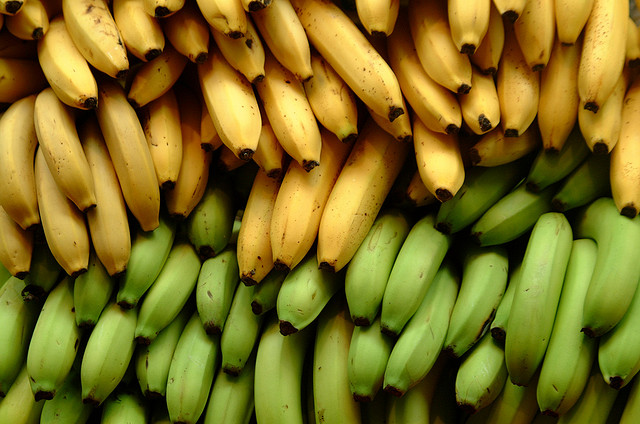It’s got more than just prohibitions on eating your own horse. Ask your Librarian to get the most out of the European Documentation Centre.…by Stephen Soanes
The European Documentation Centre at Warwick can help you get involved in the great debates of our time.
Studying climate change? Interested in how we farm our food? Want to know more about post-Cold War demilitarisation? Whether you’re working on an essay or want to engage in the discussion, the European Documentation Centre is something you should consider using.
It’s innocuous on the outside, but can pique the interest of even the most hardened Eurosceptic…
Beyond Bananas

ES: I can’t stomach it.
Bob: Hmm?
ES: The European Union. They make us eat straight bananas and won’t allow me to eat my own horse.
Bob: Have you been reading the Daily Mail again? Or is this a Heston Blumenthal recipe?
ES: Neither.
Bob: Thank God for that. I was about to change my plans for dinner.
ES: I just saw that the Library has a European Documentation Centre. All that documented bureaucracy has put me off my lasagne.
Bob: Have you even looked at the collection? It deals with some of the biggest debates of our time. That’s because the EU itself covers everything from climate change and weapons of mass destruction to human rights and international aid.
ES: I thought it was just going to be about MEP expenses and fruit metrics. So what else is there?
Bob: It’s got the records of the European Court on Human Rights and the European Central Bank for starters. So if a treasure trove of information for many subjects, whether you’re doing politics, economics, law, life science, history…
Can’t I just Google It?
ES: Isn’t this already on Google?
Bob: Most of the important documents are online, but it can take time to find what you want just using Google and EUROPA.
ES: I told you! It’s bureaucracy gone mad…
Bob: It is complex, mainly because it deals with so many subjects. The EU employs more translators than anywhere in the world – about 6,000 – so it’s hardly surprising there’s a lot to read.
ES: Maybe I’ll stick to the Daily Mail.
Bob: Not so fast. It’s exactly the number of publications and policies that makes the European Documentation Centre such a rich resource.
ES: I suppose it could help with my essays.
Bob: Exactly. It could make for a more original argument, with evidence that even your lectures may not yet have considered.
ES: Ok, but how am I going to find what I need in this Kafkaesque collection?
Bob: It’s not that bad. Even so, it’s worth asking a librarian to find what you’re after.
ES: A what?
Bob: They’re like a human search engine. Basically, academic librarians are Google without the banner ads.
ES: So where should I go first? Should I just turn up at the Library?
Bob: I’d e-mail [email protected] and say what you’re looking to find out. They can help you track down documents online or in the physical collection.
ES: What about if I wanted to find out about how the EU has influenced what we eat, just out of general interest?
Bob: That’s fine. In fact, that’s part of the purpose behind the 400 European Documentation Centres, which aim to encourage public debate and make its work more transparent.
ES: Where is it?
Bob: It’s on the 4th floor of the Library. You may even have walked past it as it’s essentially just two lines of shelves. If you have trouble finding it just ask a one of our Advisers.
ES: The way you were talking, I was expecting an Aladdin’s Cave of giant volumes and scrolls of parchment…
Bob: Don’t judge a book by its cover. There’s enough here to keep us both busy well into our Professorships.
ES: Top banana! Better get started then. That reminds me, what do you want me to cook tonight?
Bob: I feel like Brussels sprouts…
Images:
Bananas/Ian Ransley/ CC BY 2.0
European flag/RockCohen/CC BY 2.0
Like this? tweet this!
#studyblog
